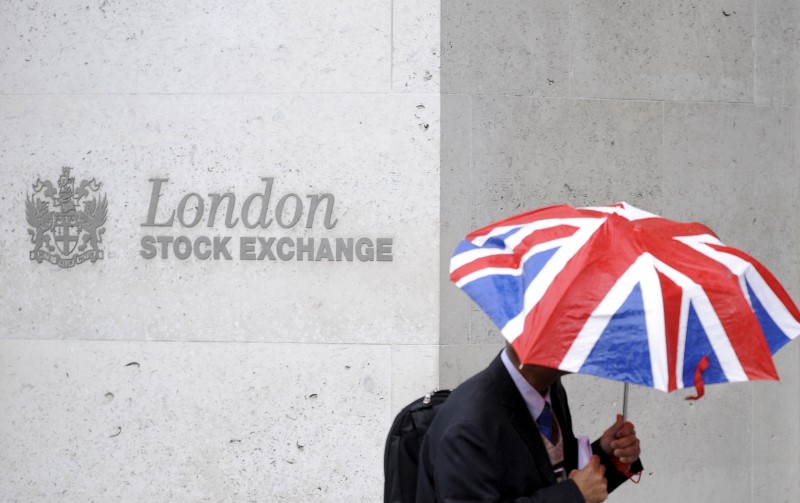By Kit Rees
LONDON (Reuters) - Britain's top share index ended higher on Monday, with a rally in basic resources stocks on the back of stronger metals prices supporting the broader equities market.
The blue-chip FTSE 100 index (FTSE) closed 0.2 percent stronger at 6,151.40 points after gaining in the previous session. However, the benchmark index is still down about 1.5 percent so far this year.
The UK mining index (FTNMX1770) rose 2 percent after metals prices rose following a softer dollar and data showing an improvement in China's property sector, offsetting several softer gauges of the country's economy that had raised concerns over the demand prospects for industrial metals.
"Miners are rallying on stronger metals prices and brokers too are generally turning somewhat positive," Jawaid Afsar, senior trader at Securequity, said.
"A weaker dollar could support the market further, but a further strong rally in the near term seems challenging given the pace of economic growth in top metals consumer China."
Anglo American (L:AAL) gained 5.4 percent after a double upgrade from Bank of America (NYSE:BAC) Merrill Lynch, which raised its target price and its rating on the stock to "buy" from "underperform". Shares in Antofagasta (L:ANTO), Glencore (L:GLEN) and BHP Billiton (L:BLT) were up 1.9 to 3.4 percent.
Among small caps, miner Lonmin (L:LMI) surged nearly 20 percent after reporting a first-half core profit of $36 million, up from a loss of $6 million the same time a year ago following cost savings.
"Lonmin’s results continue to provide fuel for the idea that the mining sector is past the worst, even if much of the improvement has come from cost-cutting, with platinum prices so far stubbornly refusing to respond," Chris Beauchamp, senior market analyst at IG, said.
On the downside, property developer British Land (L:BLND) fell 0.7 percent after reporting results. While the company posted a rise in its full-year portfolio value, investors voiced concerns about the impact on the sector of Britain's June 23 referendum on whether to leave the EU.
"Despite a positive overall outlook, the group cites recent slowdown in office occupational demand, likely due to the EU referendum, as well as weaker consumer confidence and retail sales since the beginning of the year," analysts at Liberum said in a note.

"This is the first sign of occupational weakness in the sector and we would expect it to weigh on the shares."